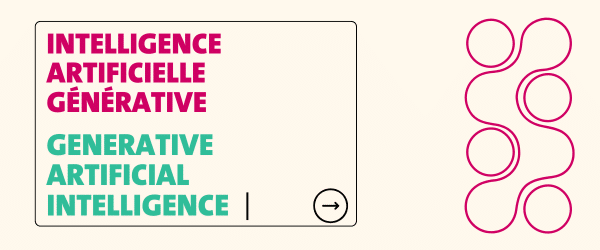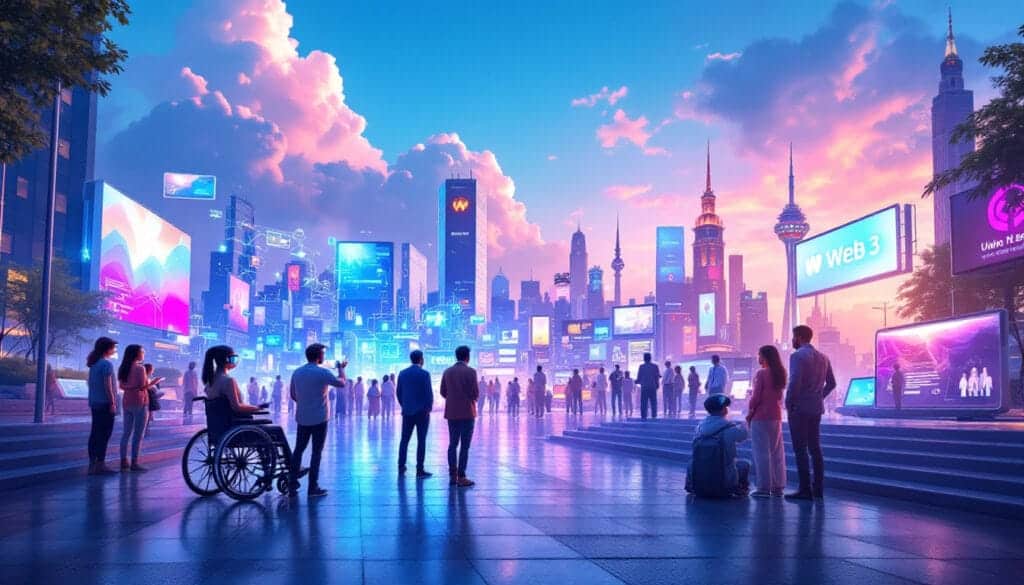Generative artificial intelligence stands out for its ability to create new content based on deep learning models. It reproduces data in various formats, whether it’s text, images, music, or videos. Far from being merely reactive, this category of AI invents, thus imitating the human creative process.
Table des matières
ToggleGlossary of Generative Artificial Intelligence
Generative artificial intelligence (generative AI) represents a specialized category of artificial intelligence distinguished by its ability to create new content. Unlike traditional AI, which is limited to analysis and prediction, generative AI focuses on the generation of original data. This includes varied content such as written texts, images, videos, and even music.
Generative AI operates by leveraging deep learning models, which learn from vast existing datasets to produce new information that mimics human creations. This process often relies on advanced neural networks, such as generative adversarial networks (GANs), which pit multiple networks against each other to enhance the quality of the generated content. The uniqueness of generative AI lies in its ability to produce unprogrammed results from given prompts, thus opening up unprecedented perspectives in various fields.
The applications of generative AI are numerous and touch various spheres of industry and creativity. For example, it is used in the creation of digital artworks, the development of advertising content, or even the automatic generation of dialogues for video games. In medicine, generative AI is also explored to design new proteins, thereby reducing the time needed to develop potential drugs. Additionally, generative AI enables the simulation of complete virtual environments, enriching immersive experiences in virtual or augmented reality.
With its undeniable advantages, generative AI also poses challenges and disadvantages. One of the main concerns is the risk of malicious use to create fake content, such as deepfakes or false information intended to manipulate public opinion. Furthermore, the learning process of the models requires a significant amount of computing power, raising concerns about the environment and increased energy consumption.
Regarding environmental concerns, a study reveals that Mistral AI stands out for its environmental performance among generative AI interfaces. To delve deeper into the environmental issues related to AI, the Economic, Social and Environmental Council (CESE) offers recommendations in a move towards an ecological artificial intelligence.
Generative AI has the potential to transform various industries by improving efficiency, optimizing processes, and allowing for increased customization of products and services. In the context of Industry 4.0, it plays a crucial role in supporting process optimization through the analysis of large amounts of data, as described in the in-depth analysis of the Industry 4.0 market.
Finally, bold initiatives, such as those of the Lille-based start-up Lifebloom, demonstrate how innovative technologies, including generative AI, can transform functional equipment into innovative solutions for everyday life. However, it is crucial to reassess the impact of these technologies on the environment, knowing that the energy impact associated with AI is a growing concern with the demand for GPUs.

FAQ on Generative Artificial Intelligence
Q: What is generative artificial intelligence?
Generative artificial intelligence, or generative AI, is a category of AI capable of producing new content such as text, images, music, or videos based on deep learning models.
Generative AI differs from other types of artificial intelligence due to its ability to create new data from prompts, while AI in general can focus on various tasks such as image recognition, prediction, or data analysis.
Generative AI can create texts, images, music, and videos. This type of system is designed to imitate human creativity by learning from vast existing datasets.
Generative AI has numerous applications, particularly in the fields of artistic innovation, product design, video games, marketing content creation, and even healthcare.
The main advantages of generative AI include its ability to automate and speed up content creation, while opening new creative avenues and generating synthetic data for training other AI models.
The disadvantages of generative AI may include concerns regarding the quality and originality of the generated content, as well as challenges related to the security and legitimacy of the use of these technologies.





